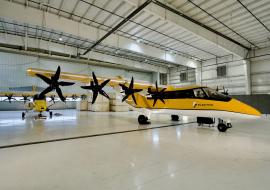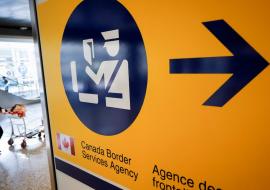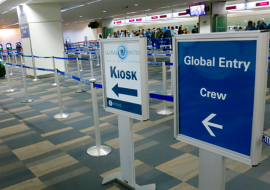Verizon, AT&T Push Back Some 5G Service over Airlines’ Concerns

(AP) - Federal regulators say Verizon and AT&T will delay part of their 5G rollout near airports to give airlines more time to ensure that equipment on their planes is safe from interference from the wireless signals, but the airline industry is not happy about the deal.
An airline industry trade group said federal regulators are taking a “rushed approach” to changing equipment on planes under pressure from the telecommunications companies.
The Federal Aviation Administration said Friday that the wireless companies agreed to delay some of their use of the C-Band section of the radio spectrum until July 2023.
However, aviation groups say the C-Band service could interfere with radio altimeters — devices used to measure a plane’s height above the ground. Pilots use altimeters for landing in bad weather, when visibility is poor.
Airlines for America, a trade group for the largest U.S. carriers, said the FAA hasn’t approved necessary upgrades and manufacturers have not yet produced the parts.
Verizon said the agreement will let the company lift voluntary limits on its 5G rollout around airports “in a staged approach over the coming months.” AT&T said it agreed to take “a more tailored approach” to controlling the strength of signals near runways so airlines have more time to retrofit equipment.
Friday’s developments were the latest in a long-running dispute between airlines and wireless companies and their respective regulators, the FAA and the Federal Communications Commission, which determined that C-Band service posed no risk to planes.
Verizon and AT&T spent $68 billion between them at an FCC auction of 5G spectrum last year. The companies began activating new 5G networks in January but agreed to delay powering up some towers for six months, until July 5, because of concerns raised by the FAA and airlines.














